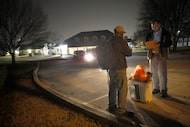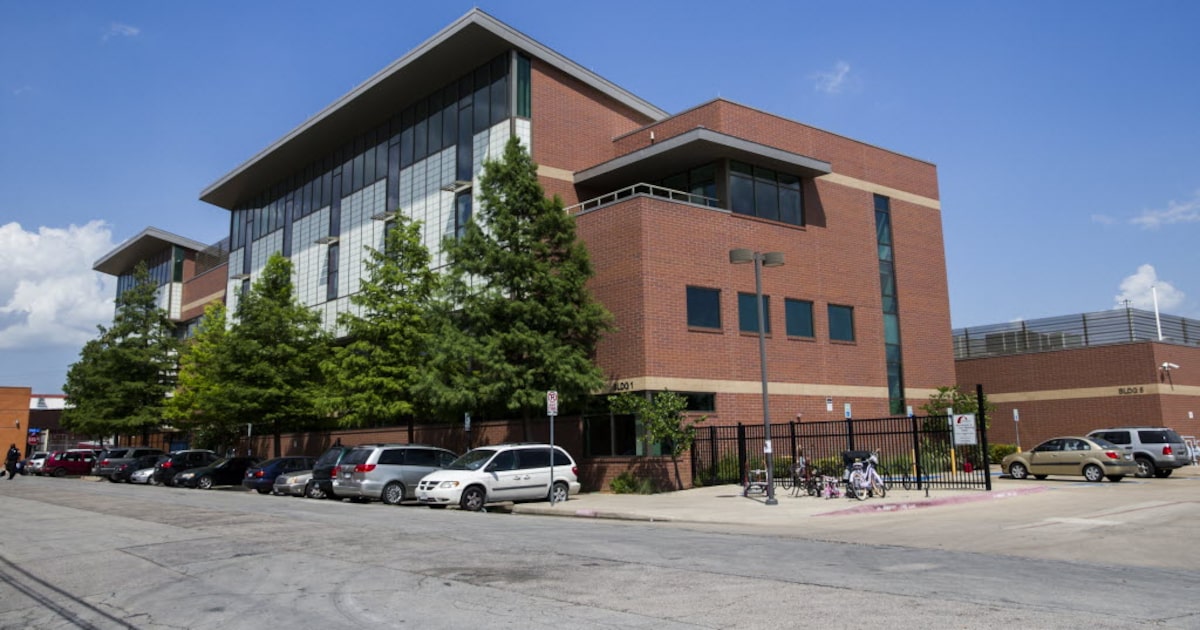The Dallas City Council voted Wednesday to approve $7.8 million in contracts for homelessness services, including a $5.9 million renewal for The Bridge Homeless Recovery Center, one of the city’s largest shelters.
The council also agreed to accept $1.3 million in additional funding from Dallas County — pending final approval by the County Commissioners Court on Oct. 7 — an increase from the $1 million the county has provided annually since at least 2020.
The funding renews existing agreements with six organizations: The Bridge, Austin Street Center, Salvation Army, Catholic Charities, The Stewpot and Harmony Community Development Corporation.
The vote comes after four council members were accused Tuesday of violating the Texas Open Meetings Act by discussing proposals related to the city’s homelessness efforts, including an idea to relocate The Bridge from downtown to Dallas Executive Airport, in a closed-door meeting. Council member Zarin Gracey, whose district includes the airport and who was among those accused, has said he and the community wouldn’t support the relocation idea.
Political Points
Related

The Bridge relocation proposal wasn’t discussed during the City Council meeting Wednesday.
Dr. David Woody III, president and CEO of The Bridge, urged the council to approve the contracts, calling them critical to the shelter. The $5.9 million funds The Bridge’s annual operations and go into effect Oct. 1.
He noted the shelter has aided more than 6,300 people over the last year, which he said would be 1,000 more than the prior 12 months. He also said the shelter houses 400 people nightly and has helped 900 people secure housing this year.
“Your leadership and approval of these items will sustain the momentum we’ve created as we aspire to attain our mission: empowering adults experiencing homelessness in Dallas with the tools for recovery as they move into sustainable housing,” Woody said.
Other approved contracts include:
-$686,740 for emergency shelter services through The Salvation Army, The Bridge, and Austin Street Center.
-$250,000 for Catholic Charities to support people experiencing homelessness who are 55 years old and up with housing and case management.
-$575,000 for Austin Street Center’s recovery services for people with mental illness or substance use disorders.
-$255,000 for homeless diversion programs through Harmony Community Development Corporation, Catholic Charities, and The Stewpot.
-$125,899 for The Bridge’s Rapid Rehousing Program, which helps people transition into stable housing.
Related

Council member Cara Mendelsohn proposed delaying the votes to allow the council’s housing and homelessness solutions committee to review the proposals and ensure clear performance metrics are reported to the City Council. None of her attempts gained traction.
“We have to make sure that our dollars are doing the work that are intended,” she said.
The Bridge’s $5.9 million contract was approved, along with an amendment to review its Good Neighbor Agreement —a set of guidelines outlining how the shelter interacts with surrounding neighborhoods —in the housing committee.
After the council meeting, Woody told The Dallas Morning News that he was excited about the contract renewals but was unaware of any relocation discussions until the day before.
“I learned about all of this for the first time yesterday, like most people,” Woody said.
Woody expressed concerns about the logistical and financial challenges of relocating, including transportation barriers for people who are experiencing homelessness getting to a location that wasn’t downtown.
“My major concern would be the dollars and what it would take to build a new sheltering opportunity in an area where the homeless aren’t right now,” Woody said. “All over the country, there are unhoused folks in urban, central business districts; it’s not unique to Dallas. I would hope folks would be thinking critically about what that would mean to move.”
He also questioned whether funders would support a new facility when The Bridge could be expanded instead.
